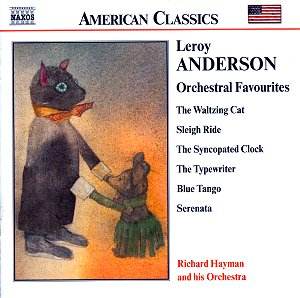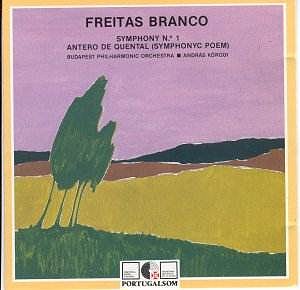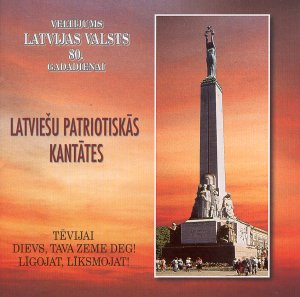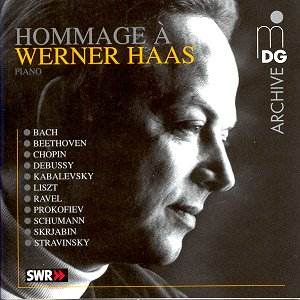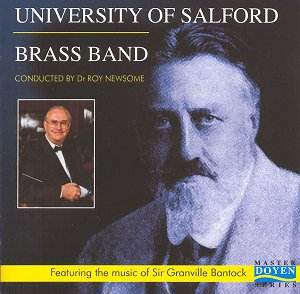 Composer: Granville Bantock
Composer: Granville Bantock
Works: King Lear Overture, Kubla Khan, Prometheus Unbound, Symphonic Prelude, The Land-Of-The-Ever-Young, The Frogs (Of Aristophanes) Overture, Orion, Festival March
Performers: University of Salford Brass Band, Dr. Roy Newsome (conductor)
Recording: Maxwell Hall, University of Salford
Label: Doyen DOYCD 109 DDD [66:40]
Granville Bantock, a figure emblematic of the British musical renaissance, occupies a unique position within the canon of early 20th-century composers. Renowned for his contributions to the brass band movement, Bantock’s works reflect a rich tapestry of influences, ranging from the pastoral landscapes of the Hebrides to the dramatic narratives derived from literature. This compilation, featuring a selection of his band works, provides a rare opportunity to explore the evolution of his compositional style and the varying degrees of his inspiration across different pieces.
The recording opens with the King Lear Overture, a work that encapsulates Bantock’s penchant for dramatic narrative. Here, Dr. Roy Newsome and the University of Salford Brass Band deliver a performance that captures the tumultuous spirit of Shakespeare’s tragedy, though at times, the execution feels slightly restrained. The brass ensemble’s blend is commendable, yet moments of intonation insecurity detract from the overall impact. In contrast, the Kubla Khan overture presents a vivid portrayal of Coleridge’s exotic imagery. This arrangement, originally conceived for male voice choir, is transformed through Bantock’s distinctive orchestration. The performance here is particularly effective in evoking the elusive beauty of the “stately pleasure-dome,” with lush harmonies that resonate well in the brass medium.
Prometheus Unbound is arguably the standout track of this collection, displaying a dramatic arc that holds the listener’s attention. The thematic development is compelling, particularly in the second movement where the interplay between the cornet and euphonium provides a poignant dialogue. The dream-like sequence in The Frogs, which was arranged for brass band by Frank Wright, showcases Bantock’s ability to weave humor and sophistication into his music. The ethereal quality of this section is particularly noteworthy, and the band captures its essence effectively, demonstrating a nuanced understanding of dynamics and phrasing.
However, not all works in this anthology maintain the same level of interest. The Land-Of-The-Ever-Young, composed late in Bantock’s life, offers nostalgic charm but lacks the thematic depth found in his more accomplished pieces. The Festival March, while rousing, suffers from a certain predictability, with melodic lines that fail to linger in the memory. Similarly, both Orion and the Symphonic Prelude, though ambitious in scope, do not sustain engagement throughout their respective durations.
The recording quality presents a mixed picture; while the clarity of the sparser textures is commendable, the overall sound occasionally feels recessed, particularly in the lower brass, which tends to lose some of its sonorous richness. This is a minor flaw, but it is notable in a recording that aims to elevate Bantock’s contributions to the brass band repertoire. The engineering choices could have enhanced the brightness of the ensemble, allowing the intricate counterpoint and harmonies to shine through more vividly.
Despite its unevenness, this anthology is an essential addition for anyone interested in Bantock’s work and the brass band tradition. It highlights not only the composer’s unique voice but also the significant role that brass bands played in the cultural landscape of early 20th-century Britain. While some pieces may lack the enduring appeal of his most well-known works, the performances here provide a valuable insight into Bantock’s artistic evolution and underscore the importance of his contributions to British music. Enthusiasts and scholars alike will find much to appreciate in this engaging collection, making it a worthwhile exploration of a composer who, though sometimes overlooked, deserves greater recognition in the broader narrative of classical music.
